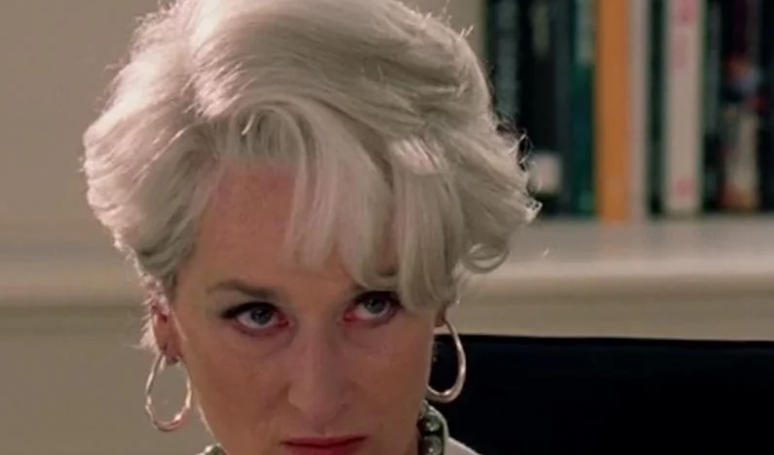In many cases, acne symptoms can lead to depression, which requires a watchful eye from healthcare providers.
Summary
Acne is a disease that can cause damage to patients’ mental health, affecting their self-esteem and predisposing them to sadness and depression. To achieve this goal it is important to start treatment as soon as possible and, in more serious cases, it is also necessary to turn to psychologists.
-
BY PARTICIPATING

It’s not just about pimples – understand other problems caused by acne too
-
BY PARTICIPATING

André Mantovanni draws the tarot cards for the week: from April 29th to May 5th
-
BY PARTICIPATING

5 excuses you can no longer give to avoid exercise
-
BY PARTICIPATING

The former president of Uruguay, Pepe Mujica reveals esophageal cancer: ‘Life is beautiful and you spend it’
You know that typical scene from a teenage romantic comedy where a pimple appears between your eyebrows or on the tip of your nose on the day of a big party, causing a range of emotions between anger and sadness? Real-life persistent acne patients would benefit if pimples appeared only this way: a few and on specific days. In fact, it is a problem that often resists treatment, affects self-confidence, predisposes to sadness and depression, which can also culminate in social isolation.
“Acne is an inflammatory and infectious skin disease, which sometimes also causes discomfort and pain. But the truth is that constantly battling acne can affect your mental health and even affect your self-esteem. We therefore always advise parents to take their child to the doctor to start treatment as soon as possible,” she explains. Danilo S. Talaricoprofessor at the Lapidare Institute and the Primum Faculty (Former BWS Institute) of Dermatology, Trichology, Hair Transplantation (Hair Surgery) and Aesthetic Medicine.
Bright red pimples aren’t just a teen problem, of course, but regardless of when — or how — they appear, their impact isn’t just superficial.
Negative impacts on self-confidence
Many patients suffer not only from persistent active acne but also from scars that appear on the skin, changing the relief of the skin. “This patient tends to feel insecure and embarrassed about their appearance. This can be so intense that many report avoiding taking photos. Or he still doesn’t like looking at himself in the mirror,” says Danilo.
In 2011, the study Consequences of psychological distress in adolescents with acnepublished in the Journal of Investigative Dermatology, even found that people with moderate to severe acne were less likely to engage in romantic relationships.
“Taking care of your skin can seem superficial and this is one of the reasons why many people feel embarrassed to talk about it. But the truth is that this affects the quality of life and, for this reason, it must be taken seriously,” says the doctor.
«In cases like these, the doctor, in addition to carrying out combined treatments with topical products and oral medications, can also refer the patient to a psychologist, to prevent the skin disease from damaging mental health», explains Danilo.
Social isolation
By damaging self-esteem, acne can also have the side effect of social isolation.
“Many patients feel embarrassed due to inflamed acne or scarring. It is also important to point out that there is still a very wrong stigma that acne is linked to poor hygiene. This is not true. The skin is more oily and prone to acne, largely due to genetic influence,” she points out.
According to the doctor, staying at home once or twice is not necessarily a warning sign that acne is ruining his life, but if this isolation becomes a habit, when the patient runs away from social interactions feeling ashamed of his skin, this means those stubborn pimples are affecting your mental health.
“Hideing from the world may seem like a harmless way to protect your well-being, but research shows that social support can improve mental health and self-esteem. In this phase, in addition to skin care, therapy with a psychologist can also be useful,” explains the doctor.
Depression
Severe or resistant acne may also be accompanied by signs of depression.
“We’re not just talking about a pimple that pops up before a big work presentation and leaves you in a foul mood. Sometimes acne can make a patient feel so sad that they become clinically depressed. There is a lot of evidence that people with acne are more likely to develop depression than those without the condition (some studies report up to two or three times more likely). This connection is logical, because not wanting to be seen or hating your appearance represents a heavy emotional burden and can make even the simplest tasks (such as getting out of bed, taking a shower or dragging yourself to work) difficult,” explains the doctor.
In extreme cases, some people may even have suicidal thoughts.
“Many patients come and say they have tried everything: every product, every dermatologist, every prescribed medication. So there can be this feeling of hopelessness when you feel like you’ve tried everything and nothing is working. For these patients, treatment with isotretinoin is indicated, which causes a permanent atrophy of the sebaceous glands of the skin, preventing new skin lesions, but we must be more careful with this patient and recommend medical and psychological follow-up. This drug has side effects that require further investigation by the doctor and psychologist”, explains Danilo.
What to do?
Seeing a doctor is a great place to start. There are oral and topical treatments, using acids and even medications.
“The practitioner will also be able to provide guidance on foods that can act as triggers and modulate stress, which also helps make acne worse. But even if you have research-backed ingredients and highly trained experts by your side, it can still take months, even years, to figure out what works best for your specific skin and get the results you’re looking for. In some cases we can recommend isotretinoin which has a healing effect,” explains the doctor.
“And if acne is hindering your daily functioning—for example, if you lose your job or regularly experience symptoms of depression such as hopelessness or irritability—it may be time to find a therapist. These mental health professionals can teach you tools to control the your mood while you rely on medical care,” he explains.
“And never ever pop a pimple. This creates a deep lesion in the skin that serves as an entry point for bacteria. These bacteria can cause a localized infection which, if left untreated, can spread, for example affecting nerves and causing paralysis. In more serious cases, the infection can spread and cause sepsis, an inadequate reaction of the body to the infection which can lead to death. Additionally, it can leave marks, such as blemishes and scars. Always look for a doctor who adequately treats the pathology”, concludes Danilo.
inspires transformation in the world of work, in business, in society. Compasso, a content and connection agency, is born.
Source: Terra
Ben Stock is a lifestyle journalist and author at Gossipify. He writes about topics such as health, wellness, travel, food and home decor. He provides practical advice and inspiration to improve well-being, keeps readers up to date with latest lifestyle news and trends, known for his engaging writing style, in-depth analysis and unique perspectives.





![Tomorrow belongs to us: What awaits you on Thursday, 2014, in the episode of August 21, 2025 [SPOILERS] Tomorrow belongs to us: What awaits you on Thursday, 2014, in the episode of August 21, 2025 [SPOILERS]](https://fr.web.img4.acsta.net/img/f3/67/f367cef67259314e71fe2cb3ee784be4.jpg)



